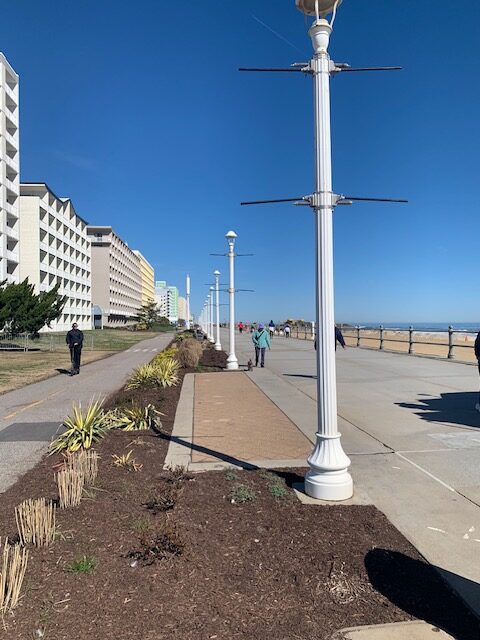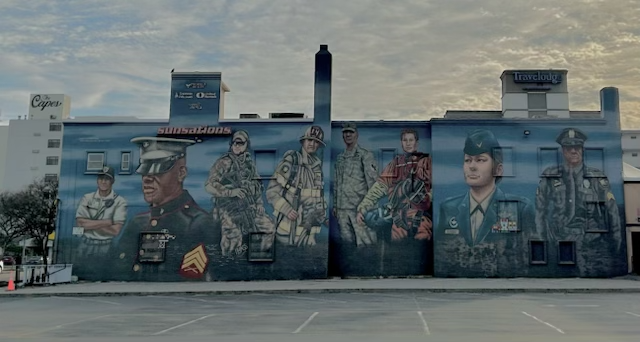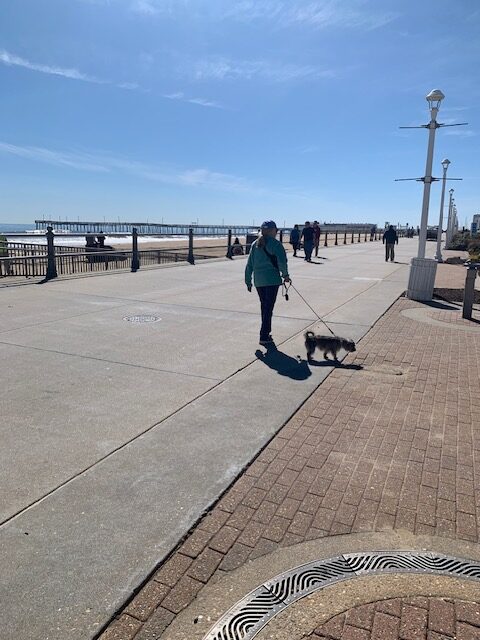In Virginia Beach Military Post, Probing Residents’ Hopes and Fears
Why are military communities where many residents are charged with defending the American way of life feeling so poorly about the future of America and the future of their children or next generation? That was a big question out of the American Communities Project’s 2024 survey.
Just 47% in Military Posts said they felt hopeful about the long-term future of the United States, and 56% of residents in these places (many of which are near the nation’s coasts) said they felt hopeful about the future of their children or the next generation, according to our survey of 5,312 Americans last summer, the second of three surveys exploring the fragmentation in American society.
77 Military Posts Across America
These ratings were among the lowest of the 15 kinds of communities the American Communities Project studies. This spring we traveled to Virginia Beach, Virginia, one of the 77 counties classified as a Military Post in the ACP typology, to understand why.

As jets routinely roared by overhead, a mix of part-time and full-time residents from different walks of life opened up about their hopes and fears while strolling along the boardwalk, browsing the library, or taking a break in a local restaurant.
Mary Conley Brunstead, a retired registered nurse from Chippewa Falls, Wisconsin, who has been coming back to Virginia Beach during the winter months since 2014, first became acquainted with the community in 1973 and served here for 12 years, off and on. Job cuts to the military are foremost on Brunstead’s mind now. “I’m a little bit apprehensive. I think when you have someone that’s actually caught up in it, we have a son-in-law who’s on the ropes right now. He’s worked for the Department of Army. He’s a civilian at Rock Island Arsenal, and he’s been there since 2004, and right now he’s at risk. And our son was in the Navy from 2000 to 2004, and he has just applied for a job with the Veterans Hospital in Chippewa Falls, and I’m concerned that he’ll be hired and then fired,” Brunstead says.
Many of the people the ACP spoke with had connections to the military — people who either once served, had parents who served, or who came to the area to work in the many civilian jobs around the armed forces. The military is a driving force in the larger “Hampton Roads” community in Virginia’s Tidewater Region, which is exposed to the environmental shifts that are occurring with climate change.
For her part, Charlie Levine, full-time resident and part-time student and legal secretary, is particularly concerned about the future her community — and wants to be involved in its path forward. “I hope to become involved in on city council or something, because Virginia Beach, specifically as a coastal community, is in a lot of trouble as sea levels rise, and we have a lot of issues with flooding, and environmental science is my passion, so I would like to see our roads and houses not be underwater in a few years,” says Levine.
Her worry extends to the country at large. “When I think about the direction of the United States as a country, I’m incredibly anxious, but I am also a little hopeful, because you have to be to keep going. But yeah, it’s rough. Climate change is my main issue, and it’s like, we only have so much time to fix this problem.”
These women’s gloomy views track with our survey findings of genders divided on hope in Military Posts. Just 43% of women in these communities said they are hopeful for the country’s long-term future, while 51% of men feel the same way. Similarly, 71% of women said they are hopeful about the future of their community, and 78% of men said the same.

